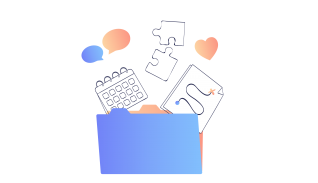Work-life balance
The concept 'work-life balance' is the ability to divide time and focus between work and private life. Work-life balance is about maintaining a balance between professional responsibilities and all aspects of our personal life, e.g., family life (childcare, relationships with loved ones), social life (relationships with other people, activities in organisations), and various types of interests. The balance between free time and time spent at work is extremely important and brings many benefits. Rest is important to improve performance at work and create a sense of satisfaction with the tasks performed.
Work-life balance, from a professional perspective, means organisational practices on the part of the employer that will help us balance professional and personal obligations, e.g., flexible working hours, the possibility of remote work at the request of the employee, integration events with the participation of family and loved ones, social activities in the form of additional benefits (holiday allowances for families, the possibility of taking a child or a dog to work, and workplace nursery).
A positive effect of this concept is building the organisation's brand as a socially responsible business (caring for employees and their families) and creating the reputation as an attractive place of employment.
Disruption of work-life balance can lead to negative consequences, e.g., worsening of an employee's mental well-being. Studies show that a high level of conflict between work and private life leads to a higher level of occupational stress. It also increases the risk of burnout and deterioration in family relationships.
If you want to know more about work-life balance, visit: https://www.mentalhealth.org.uk/a-to-z/w/work-life-balance

The EMPOWER project has received funding from the European Union's Horizon 2020 Research and Innovation Programme under Grant Agreement No. 848180

